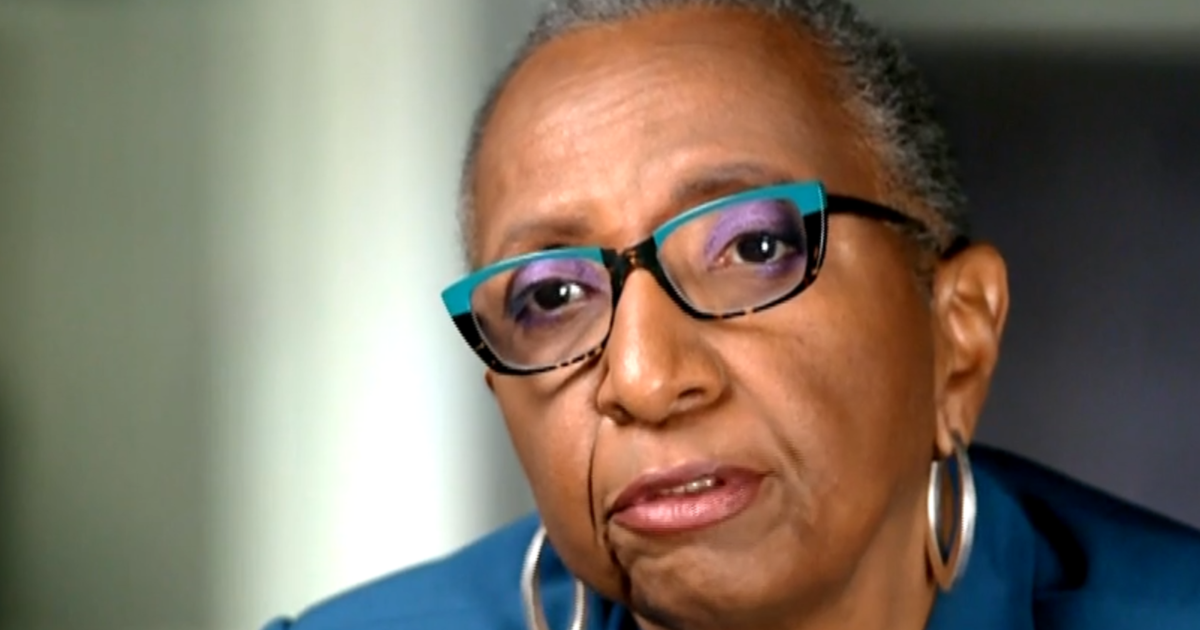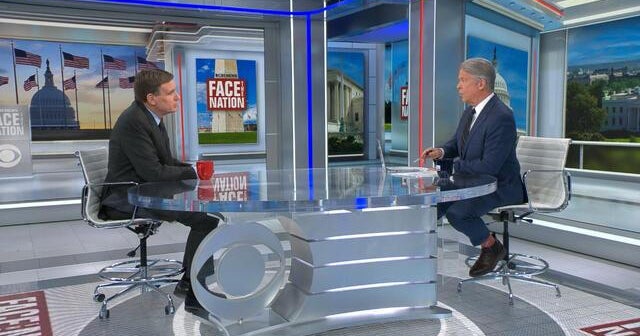FCC fund to expand phone and internet access faces Supreme Court scrutiny
Washington — The Supreme Court on Wednesday appeared likely to reject an effort to invalidate the Federal Communications Commission's multi-billion-dollar mechanism for expanding phone and internet access to low-income and rural communities.
The case before the Supreme Court, known as FCC v. Consumers' Research, involves the commission's Universal Service Fund, which is supported by contributions from communications carriers. But it also provides the high court, which has a 6-3 conservative majority, with an opportunity to revive a long-dormant legal concept known as the nondelegation doctrine.
The principle is rooted in the separation of powers and states that Congress cannot delegate its legislative powers to executive branch agencies. The central question before the court was whether Congress and the FCC violated that doctrine through the scheme.
The court last invoked the nondelegation doctrine in two cases during the New Deal-era in 1935, and conservatives — including some current justices — have advocated for reviving it. It seems unlikely, however, that the court will use this case involving the Universal Service Fund as the vehicle for doing so.
During arguments Wednesday, some of the justices appeared concerned about the ripple effects from a decision invalidating the fund on the grounds that it violated the nondelegation doctrine, and what it would mean for similar schemes overseen by other agencies.
Justice Elena Kagan argued that the telecommunications law that directed the establishment of the fund imposed constraints on the FCC.
"The FCC can't do anything by way of this program that is not basically geared toward getting those who live in very rural areas or who are very low income, getting those people access to services that all the rest of us have," she said. "That's the nature of the program and that's the limit of the program."
But Justice Neil Gorsuch said the fees imposed on telecommunications providers, which are passed onto consumers on their phone and internet bills, are a tax.
"This is just a straight up tax without any numerical limit, any cap, any rate and we've never approved something like that before," he said.
Gorsuch sought to test the limits of the Justice Department's argument that the program was allowed under the Constitution. Could Congress, for example, pass a law requiring every American to make a contribution to pay down the national debt, and leave it up to the Internal Revenue Service to figure out the specifics?
Gorsuch and Justice Amy Coney Barrett also questioned how far the FCC's power to expand programs to further its goal of universal service extends. Could the Universal Service Fund cover Starlink accounts for all Americans, or provide cellphones and plans for the entire country?
Justice Brett Kavanaugh, meanwhile, asked how the court should approach a delegation of power to an independent agency, rather than to the president.
"Does that heighten the concern about unaccountable power to … raise money to determine the rate, to determine the amount, that it's not someone accountable to the president?" he said.
The Universal Service Fund was established by the FCC after Congress passed the Telecommunications Act of 1996 with the goal of ensuring communication systems are available nationwide. Carriers that provide interstate services pay into the fund, and that money is then used to subsidize phone and internet services to low-income customers, rural and high-cost areas, and to schools, libraries and rural health care providers.
To help administer the fund, in 1997 the FCC created the Universal Service Administrative Company, a private not-for-profit corporation that helps determine the amount larger carriers must contribute to it and disburses money to program beneficiaries.
Contributions to the Universal Service Fund are based on a percentage of carriers' revenue, and telecommunications companies can, and do, pass on their share to consumers. The fund collects nearly $10 billion annually, according to its administrator.
More than 120,000 schools and libraries, and more than 9,000 rural health care providers, have benefited from the Universal Service Fund's programs, according to the Universal Service Administrative Company. More than 8 million low-income and 1.2 million high cost-area households have been served.
The case before the Supreme Court began in 2022, when a group of consumers, one carrier and a nonprofit organization filed a petition for review with the U.S. Court of Appeals for the 5th Circuit. They argued that the Universal Service Fund is unlawful because Congress unconstitutionally delegated legislative power to the FCC, which in turn transferred power to the Universal Service Administrative Company.
The petition was denied by a three-judge panel that found federal telecommunications law lays out numerous "intelligible principles" that limit the FCC's exercise of authority. The panel also rejected claims that the FCC unconstitutionally gave away its power to the fund administrator, since it lacks independent regulatory power and is subordinate to the FCC.
But the full 5th Circuit reconsidered the petition and found that the law involves the power to levy taxes, which belongs to Congress. The court ruled that the FCC also "may have impermissibly delegated the taxing power to private entities."
The 5th Circuit concluded that the combination of Congress' delegation of power to the FCC, and the commission's subdelegation of taxing power to the fund's administrator violates the Constitution.
Two other appeals courts, in Georgia and Ohio, have rejected challenges to the mechanism for bringing universal service to the country.
The Justice Department under President Joe Biden appealed the 5th Circuit's decision, and the high court in November agreed to consider the case. The Trump administration has continued to defend the constitutionality of the Universal Service Fund and argued in a filing that the FCC acts within limits set by Congress and is the ultimate decisionmaker for how much communications companies must contribute to the fund.
"Congress may not vest federal agencies with an unbounded taxing power. Nor can Congress or agencies delegate that power to private entities," acting Solicitor General Sarah Harris wrote in a filing. "Neither Congress nor the FCC, however, has done anything of the sort."
Harris told the justices during arguments that Congress told the FCC the principles it has to follow to make communications services broadly available and argued that the fund isn't a "rainy day" pot of money for the FCC to use.
Paul Clement, who argued on behalf of the Schools, Health and Libraries Broadband Coalition, told the high court this case "is simply not the right vehicle for this court to revamp its nondelegation doctrine."
But Trent McCotter, who argued on behalf of the consumers and the group Consumers' Research, said that the scheme overseen by the FCC invokes a "quintessential" legislative determination.
"At its heart, this case is about taxation without representation," he said.
The case arrives at a Supreme Court that has, in recent years, scaled back the regulatory power of federal agencies, while conservatives have pushed to rein in federal agencies that they believe are run by unelected bureaucrats.
A major victory in that fight came last year, when the Supreme Court overturned a 40-year-old decision that said courts should defer to an agency's interpretation of a federal statute if it is reasonable. Two years prior, in 2022, the high court embraced what's called the major questions doctrine, which says that Congress must give clear authorization to a federal agency when exercising power to make decisions of major political and economic significance.
But the Trump administration has joined the Biden administration in this case in defending the FCC and the Universal Service Fund, and urged the Supreme Court to reverse the 5th Circuit's ruling.
Beneficiaries of the subsidized communications services provided by the fund have also warned that leaving the lower court's decision in place would jeopardize vital services.
In a friend-of-the-court brief, the American Libraries Association warned that thousands of libraries rely on the Universal Service Fund's E-rate program to help provide communications and information services.
When Congress passed the Telecommunications Act in 1996, just 44% of public libraries had internet access. By 2000, with help from the E-rate program, more than 95% of libraries could provide internet services to patrons, the group said.
"Libraries are indispensable for Americans with no or unreliable internet access at home," the association wrote, noting that in 2023, 12% of U.S. households still lacked internet access.
The National Lifeline Association, a nonprofit that aims to preserve the Lifeline Program, another initiative funded by the Universal Service Fund, also warned that the 5th Circuit's decision threatened to end that program. Through Lifeline, eligible low-income consumers receive discounts on program-supported broadband internet or phone services.
"Without Lifeline, millions who rely on the internet for healthcare, work, education, goods and services, and other needs would lose access to these vital services," the group warned in a Supreme Court filing. "Further, were Lifeline discontinued, social isolation among older Americans would worsen, and lower income and older Americans would even lose access to 911, leading to a reduced quality of life, health, and safety."
A decision from the Supreme Court is expected by the end of June.



